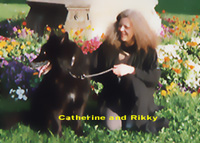| Pages in topic: < [1 2 3 4 5 6 7] > | Add "degree of nativeness" to the native language search Thread poster: Samuel Murray
|
|---|
| Disadvantaged | Jun 25, 2012 |
Yes I would definitely be disadvantaged, losing out on both the 'language use' and 'country of residence' questions, so I won't be supporting your system! There must be some points in there for 'I write into this language all day long' (and respected agencies pay for what I write and come back for more - yes I know, there are plenty of holes in this argument).
| | | | | Native language | Jun 25, 2012 |
This looks like a good definition:
A first language (also native language, mother tongue, arterial language, or L1) is the language(s) a person has learned from birth or within the critical period, or that a person speaks the best and so is often the basis for sociolinguistic identity. In some countries, the terms native language or mother tongue refer to the language of one's ethnic group rather than one's first language. Sometimes, there can be more than one mother tongue, when th... See more This looks like a good definition:
A first language (also native language, mother tongue, arterial language, or L1) is the language(s) a person has learned from birth or within the critical period, or that a person speaks the best and so is often the basis for sociolinguistic identity. In some countries, the terms native language or mother tongue refer to the language of one's ethnic group rather than one's first language. Sometimes, there can be more than one mother tongue, when the child's parents speak different languages. Those children are usually called bilingual.
http://en.wikipedia.org/wiki/First_language ▲ Collapse
| | | | | Unfortunately I don't think this will work | Jun 25, 2012 |
Samuel, with all my appreciation for your great ideas, I don't think this will work. People whose native language is really good, but they haven't lived in the country where it is spoken for a while, or did not get most of their education in that language, even if they read a lot by themselves, would only get something like 7, and they probably deserve 9 at least, if their native language is really good. This is possible. I have known people who love their native language, and although they left... See more Samuel, with all my appreciation for your great ideas, I don't think this will work. People whose native language is really good, but they haven't lived in the country where it is spoken for a while, or did not get most of their education in that language, even if they read a lot by themselves, would only get something like 7, and they probably deserve 9 at least, if their native language is really good. This is possible. I have known people who love their native language, and although they left the country at about the age of fifteen their native language is really perfect. So, this would not be fir to them. Also, some people may live in a particular country for a shorter period than 3/4 of their life, but still have close to native command of their L2, especially if they have most of their education in that language. Then they can get minus points for their parents, and for other people if they don't recognize them as completely native speakers due to some slight accent or simply because they know that they were not born in that country. This way they may end up with native level 6, although their native level should be more like 9. Also, if some people want to cheat, they will still be able to cheat. I just think the system should stay the way it is, after I have thought more about it. I think translators should be required to translate 100 words sample text for each job they apply to to prove the quality of their work. Then nobody will really care if their native language is Klingon. ▲ Collapse
| | | | Sheila Wilson 
Spain
Local time: 02:48
Member (2007)
English
+ ...
| If highest grading is 7 or 8? | Jun 25, 2012 |
Olly Pekelharing wrote:
Yes I would definitely be disadvantaged, losing out on both the 'language use' and 'country of residence' questions, so I won't be supporting your system! There must be some points in there for 'I write into this language all day long' (and respected agencies pay for what I write and come back for more - yes I know, there are plenty of holes in this argument).
Aren't we getting back to the confusion between "native" and "proficient" again? I understand you're native English, Olly, so you want 10/10, but Samuel's suggestion that 7 or 8 be counted as native would cover you, wouldn't it?
Sheila
| | |
|
|
|
Kay Denney 
France
Local time: 03:48
French to English
is starting to sound like Thatcher's definition of British
(1 point if you were born in a former colony, 2 points if you were born in India before independence, 2 and a half if you were born in the Falklands or if your father was in the Navy and you were born in Hong Kong, 3 points if your mother sold cherries and had a fulsome cleavage, 4 points if your father married an Englishwoman, an extra point if the wedding took place in Gibraltar...)
| | | |
Precisely, I want 10/10! In the present system I can simply say I'm a native speaker; in Samuel's system I am 'a native speaker to a degree' and, more importantly, 'less of a native speaker than x or y', with the obvious risks this entails for my business, while of course this degree of nativeness does not necessarily make me a poorer translator than x or y (except maybe that I need to cut down on long sentences). I know that nativeness is only one measure of proficiency, and off the record I'd ... See more Precisely, I want 10/10! In the present system I can simply say I'm a native speaker; in Samuel's system I am 'a native speaker to a degree' and, more importantly, 'less of a native speaker than x or y', with the obvious risks this entails for my business, while of course this degree of nativeness does not necessarily make me a poorer translator than x or y (except maybe that I need to cut down on long sentences). I know that nativeness is only one measure of proficiency, and off the record I'd be willing to concede the downsides to residing in a country that speaks a different language, but as far as my clients are concerned I meet the native speaker criterion and then it's just a matter of are you a good translator or not. ▲ Collapse
| | | | Samuel Murray 
Netherlands
Local time: 03:48
Member (2006)
English to Afrikaans
+ ...
TOPIC STARTER | The passing grade | Jun 25, 2012 |
Sheila Wilson wrote:
I understand you're native English, Olly, so you want 10/10, but Samuel's suggestion that 7 or 8 be counted as native would cover you, wouldn't it?
Actually it would be nice if 4 or 5 could be the passing grade, and that clients would only select higher grades if really, really necesary... but I have no idea how that would be enforced or encouraged.
[Edited at 2012-06-25 21:20 GMT]
| | | | Phil Hand 
China
Local time: 09:48
Chinese to English
| Should definitely be pass/fail only | Jun 26, 2012 |
Samuel - I don't think you're right that there should be some system of more points implying more nativeness. These questions don't seem additive at all to me. It's an arbitrary qualitative scale, and that arbitrariness should be recognised by not trying to turn it into a quantitative scale.
@Olly - I'm in the same position as you, and it's definitely fair to recognise that our native language *could* be impaired by living out of an English social environment for long periods. What'... See more Samuel - I don't think you're right that there should be some system of more points implying more nativeness. These questions don't seem additive at all to me. It's an arbitrary qualitative scale, and that arbitrariness should be recognised by not trying to turn it into a quantitative scale.
@Olly - I'm in the same position as you, and it's definitely fair to recognise that our native language *could* be impaired by living out of an English social environment for long periods. What's good about Samuel's 7-point cutoff is that this recognition doesn't automatically invalidate our native status. As I imagined it, this would be a site-internal test. Your raw score on the test would not be displayed, only the result: English native. So the worry about 9/10 looking lower than 10/10 would not be a problem.
The questions can be tweaked, but I think this is a very decent nativeness scale. The question is whether it would have an impact on the current problems. Would those who are currently lying about their native language answer more truthfully on this scale? It's like the checkbox mechanism, in that it slows you down, makes you think about what you're doing. Would that increase rates of compliance? Only time will tell...
[Edited at 2012-06-26 00:32 GMT] ▲ Collapse
| | |
|
|
|
Samuel Murray 
Netherlands
Local time: 03:48
Member (2006)
English to Afrikaans
+ ...
TOPIC STARTER | How about a little survey? | Jun 26, 2012 |
Phil Hand wrote:
The question is whether it would have an impact on the current problems. Would those who are currently lying about their native language answer more truthfully on this scale?
There is no system that will be fairer to those who don't lie than to those who do lie. Whether a system will work depends on whether those whom you're trying to reach are malicious, dishonest, or simply ignorant.
Have you thought of doing a little survey amongh Chinese translators to ask them why they believe English is their native language? Let them answer questions similar to those in my first post. Do not create the impression that you're trying to catch them out -- all you want to know is what they believe is true about themselves with regard to English.
Because right now you're just speculating about why translators believe that they are "native" -- and you're assuming that all translators know in their heart of hearts what your definition is, and that it that is the only correct definition of it. Let us know the outcome of your survey.
| | | | Phil Hand 
China
Local time: 09:48
Chinese to English
| Just for you, Samuel | Jun 26, 2012 |
I honestly don't believe that we have to hold a referendum on vocabulary items just because we want to be scrupulous about never offending anyone, but just for you, Samuel, I have opened a thread in Chinese asking everyone's opinion on native languages. There is a complicating factor: the Chinese for native language is literally mother-language, so I'm not sure that any answer we get will assuage all possible doubts, but we might at least hear some interesting ideas.
| | | | Samuel Murray 
Netherlands
Local time: 03:48
Member (2006)
English to Afrikaans
+ ...
TOPIC STARTER | Don't ask in Chinese, then :-) | Jun 26, 2012 |
Phil Hand wrote:
I have opened a thread in Chinese asking everyone's opinion on native languages. There is a complicating factor: the Chinese for native language is literally mother-language...
The same complication exists in my native language. We don't have separate words for "native language" and "mother-tongue" in Afrikaans. I normally don't view this as a complication, though it does mean that I can't have a fruitful debate about "native language" in my native language.
If these Chinese translators are really English, ask them in English . After all, the issue is the English term, not the Chinese term (is it?). . After all, the issue is the English term, not the Chinese term (is it?).
| | | | Phil Hand 
China
Local time: 09:48
Chinese to English
| Presumably not... | Jun 26, 2012 |
I'd have thought that Chinese people would sign up using the Chinese Proz, and so would answer the native language question in their profile in Chinese. I checked, and the Chinese version of Proz just uses the standard mother-language Chinese word.
Only four responses yet, but they're all in English, and no significant differences are being revealed yet. I'll try to throw in some more provocative questions tomorrow.
| | |
|
|
|
Diana Coada (X) 
United Kingdom
Local time: 02:48
Portuguese to English
+ ...
| Completely agree | Jun 26, 2012 |
LilianBoland wrote:
Samuel, with all my appreciation for your great ideas, I don't think this will work. People whose native language is really good, but they haven't lived in the country where it is spoken for a while, or did not get most of their education in that language, even if they read a lot by themselves, would only get something like 7, and they probably deserve 9 at least, if their native language is really good. This is possible. I have known people who love their native language, and although they left the country at about the age of fifteen their native language is really perfect. So, this would not be fir to them. Also, some people may live in a particular country for a shorter period than 3/4 of their life, but still have close to native command of their L2, especially if they have most of their education in that language. Then they can get minus points for their parents, and for other people if they don't recognize them as completely native speakers due to some slight accent or simply because they know that they were not born in that country. This way they may end up with native level 6, although their native level should be more like 9. Also, if some people want to cheat, they will still be able to cheat. I just think the system should stay the way it is, after I have thought more about it. I think translators should be required to translate 100 words sample text for each job they apply to to prove the quality of their work. Then nobody will really care if their native language is Klingon.
| | | | | No reference to "parents" please ! | Jun 27, 2012 |
Hi,
Please, don't forget that a lot of children don't know who their biological parents were (for whatever reason); even some are/were not brought up by a foster family, but raised by institutions.
I think that referring to "parents" would be discriminatory, particularly in those times when economical, environmental and political situations may (have) generate(d) real tragedies afa children are/were concerned.
Not everyone has/had an as comfortable backgr... See more Hi,
Please, don't forget that a lot of children don't know who their biological parents were (for whatever reason); even some are/were not brought up by a foster family, but raised by institutions.
I think that referring to "parents" would be discriminatory, particularly in those times when economical, environmental and political situations may (have) generate(d) real tragedies afa children are/were concerned.
Not everyone has/had an as comfortable background as most of us have/had.
Catherine ▲ Collapse
| | | | XXXphxxx (X) 
United Kingdom
Local time: 02:48
Portuguese to English
+ ...
| A simple solution | Jun 27, 2012 |
Catherine GUILLIAUMET wrote:
Hi,
Please, don't forget that a lot of children don't know who their biological parents were (for whatever reason); even some are/were not brought up by a foster family, but raised by institutions.
I think that referring to "parents" would be discriminatory, particularly in those times when economical, environmental and political situations may (have) generate(d) real tragedies afa children are/were concerned.
Not everyone has/had an as comfortable background as most of us have/had.
Catherine
In the UK, we use the term "parent/guardian" - something along those lines seems to cover all possibilities.
| | | | | Pages in topic: < [1 2 3 4 5 6 7] > | To report site rules violations or get help, contact a site moderator: You can also contact site staff by submitting a support request » Add "degree of nativeness" to the native language search | Trados Studio 2022 Freelance | The leading translation software used by over 270,000 translators.
Designed with your feedback in mind, Trados Studio 2022 delivers an unrivalled, powerful desktop
and cloud solution, empowering you to work in the most efficient and cost-effective way.
More info » |
| | Pastey | Your smart companion app
Pastey is an innovative desktop application that bridges the gap between human expertise and artificial intelligence. With intuitive keyboard shortcuts, Pastey transforms your source text into AI-powered draft translations.
Find out more » |
|
| | | | X Sign in to your ProZ.com account... | | | | | |











